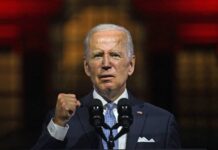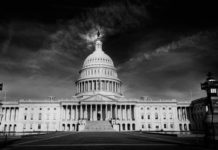The rights as were declared by the Declaration of Independence were “unalienable.” Meaning these rights always existed and cannot be taken away. When the COVID pandemic hit in 2019 many churches were closed, schools, as well as many other mandates, were implemented by the government on the argument of public safety. At the time, no question closing a church was a violation of the First Amendment. The question was more about tolerance of this right being summarily removed.
Today, almost two years later, many people have developed a mindset that because this happened, those rights do not exist or at the very least have little value when it comes to the pandemic. Now that the unknown is understood better, the question of tolerance no longer applies.
The First Amendment states, “make no law respecting an establishment of religion, or prohibiting the free exercise thereof.” This has been clearly interpreted that public schools are agents of the government and therefore cannot make any policies or rules that infringe on peoples’ rights. This not only has been case law for a long time but it has also been used as justification to keep religion out of schools. In a famous case Tinker vs Des Moines Public Schools, the school district tried to limit the free speech of students and lost. This has become precedent in many cases that have come before our courts. In simple terms, public schools cannot limit or restrict their students from exercising their rights.
The religious exemption form being used by many schools requires you to state you are claiming a religious exemption and that there are no other reasons. It then also must be signed by a notary and submitted to the school district and then you must wait for the approval. How does that even remotely fit the definition of “unalienable”? It looks a lot like a hindrance to “the free exercise thereof.”
Secondly, why must someone state there are no other reasons for the request? If it violates just one percent of your religious conscience, then it is a violation of your religious freedoms. There is no measure as to how much of your religious rights must be abused to justify your claim for exemption.
To help better illustrate this concept let’s use another common right we hear and see, especially in TV programs and movies, to better explain the point. They are known as a person’s “Miranda Rights.” These are a set of rights and policies created and developed from the bill of rights like the Fifth Amendment. Commonly, “You have the right to remain silent, you have the right to have an attorney present before any questioning…” The supreme court has ruled in numerous cases that these rights are unalienable. As a result, peoples’ confessions were tossed out because they were never advised of their rights i.e., “Mirandized.” Why? Simply because their rights always existed.
Now, does Miranda say, “You have the right to remain silent when you fill out this form, have it notarized, and then approved by our agency?” No, it does not! They are told they have rights. Does the school go to any length explaining the rights to the students or their parents, or are they left to figure it out on their own? In the case of Miranda rights, it is a clear requirement of law enforcement that they must explain to people their rights before they do anything that may impact their rights. Second, they are asked if they understand their rights. Does a school go to any effort to make sure people understand their rights before they implement a policy? Third, they are all asked if they want to exercise their rights, and if they verbally say “yes” then that is the end of it. No harassment to encourage them to talk. No effort must go into proving they have a right to remain silent.
So why is it when someone wants to exercise their religious rights, they have to say anything more than, “this violates my religious views?” Today, when we force a person of a protected class to jump through hoops to exercise their rights what would be the result? Accusations of racism, sexism, just to name a few. Why is it that when it comes to religion people feel the freedom to ignore their rights? To scoff at them as unimportant. To enact tyrannical policies to hinder or even go as far as intimidating with actions that would embarrass or single them out. Or in schools open them up to harassment and bullying by their other schoolmates.
We need to also remember that religious rights are not associated with a particular religion or church. In fact, they can apply to an atheist. They have every right to claim exemption from saying the Pledge of Allegiance because it has the word ‘God’ in it. They have the right to exclude themselves from a moment of silence if that silence is intended to allow people of different faiths to pray.
Clearly, these rights go way beyond just our school system. These exemption forms are being used to intimidate and hinder people from using and expressing their rights everywhere. It’s time for everyone’s rights to be respected.











